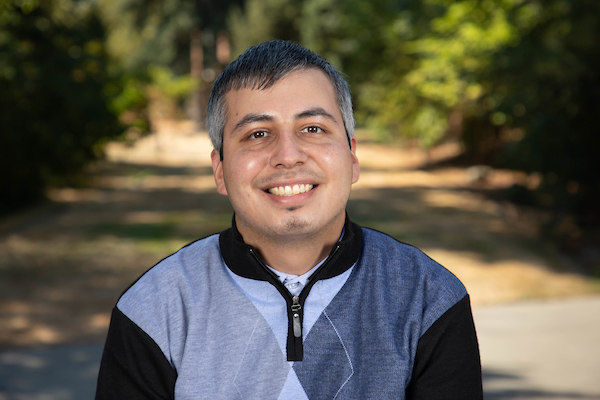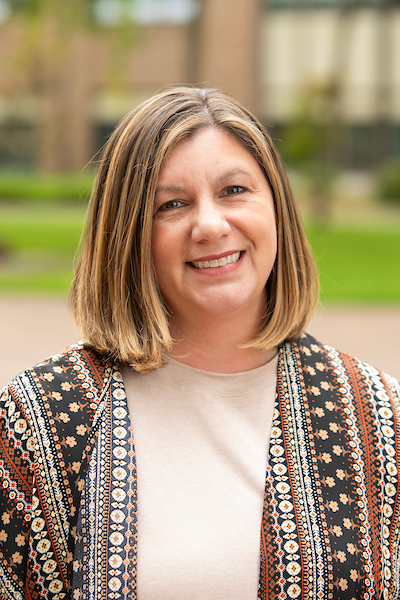Page 2 • (208 results in 0.025 seconds)
-

Professor of Psychology | Department of Psychology | moritsjn@plu.edu | I am a community psychologist and a clinical psychologist by training.
John N. Moritsugu Professor of Psychology Email: moritsjn@plu.edu Status:Emeritus Professional Biography Education Ph.D., Clinical Psychology, University of Rochester, N.Y., 1976 M.A., Clinical Psychology, University of Rochester, N.Y., 1975 B.A., Psychology, University of Hawai'i, 1971 Areas of Emphasis or Expertise Minority Status Stress American Asian Populations Books Lead author of Sixth Edition Community Psychology, with Elizabeth Vera, Frank Y. Wong and Karen Grover Duffy (Routlege 2019
Contact Information -

Associate Professor of Educational Psychology and Kinesiology | Understanding the World Through Sports and Recreation | Dr.
moral reasoning of competitive populations in America today with her work being featured on Nightline, CNN, ESPN, Fox News, the BBC TV in Manchester England and as part of a winning national news documentary award. She has worked with the United States Central Intelligence Agency, the United States Military and Air Force Academies, the Idaho Supreme Court as well as most major sport governing bodies including the NCAA, NAIA, National Federation of High School Activity Associations, and the National
-
Signed Consent Form (for research assuring Confidentiality, NOT Anonymity) Cover Letter (for use with low-risk, anonymous, surveys in hard copy format) Online Cover Letter (for use with low-risk,
Investigators must have every potential participant who is a physically and mentally able adult (at least 18 years old) provide consent prior to the initiation of the actual research. There are additional safeguards in place for populations who do not meet this description, whether due to age, disability, or other protected status. The consent process is typically made up of two parts: a discussion between the the researcher and the potential participant, and a written document (either a “consent form” or
-
There are some great benefits to joining a new program at PNWU School of Physical Therapy. Some highlights: small faculty to student ratios, state-of-the-art cadaver dissection laboratory, simulation center, and the Center for Applied Movement Sciences lab. The Center for Applied Movement Sciences lab is part of…
patients with various neurological conditions using leading-edge technology. In addition, students work at the Yakima Union Gospel Mission PT pro bono clinic, where you will serve some of our communities most vulnerable populations. PNWUs Doctor of Physical Therapy students focus on improving movement-based impairments but also learn to advocate for better care for uninsured and underinsured populations. The tuition at PNWU is inclusive of other fees such as textbooks, iPad and anatomy apps, scrubs for
-

Assistant Professor of Sociology and Criminal Justice | Department of Sociology and Criminal Justice | cuevasgv@plu.edu | 253-535-7644
Gerardo Cuevas-Buendia Assistant Professor of Sociology and Criminal Justice Phone: 253-535-7644 Email: cuevasgv@plu.edu Office Location: Xavier Hall - 244 Professional Education Ph.D. , Sociology, The Pennsylvania State University, 2021 M.A., Criminology, The Pennsylvania State University, 2016 B.A., Sociology, University of California, Los Angeles, 2014 Areas of Emphasis or Expertise Criminology Juvenile Justice Race and Education [School Discipline] Urban Inequality Latina/o/x Populations
Area of Emphasis/Expertise -
1. Implement evidence-based practice, incorporating theory, models, and science to ensure safe, quality health care. 2.
MSN Programs Outcomes1. Implement evidence-based practice, incorporating theory, models, and science to ensure safe, quality health care. 2. Integrate knowledge of technology, information systems, policy, organization, and financing into the improvement of health care delivery and health outcomes. 3. Demonstrate a commitment to ethical decision making, social justice, and advocacy for vulnerable and diverse populations. 4. Develop and use collaborative leadership and management strategies that
-
16 semester hours, including: CSCI 120 or 144; or DATA 133 STAT 231, 232, or 233; or MATH/STAT 242 And at least: 8 additional semester hours of statistics selected from BUSA 467, ECON 344, PSYC 242,
the math placement exam. (4) STAT 231 : Introductory Statistics - QR Descriptive statistics: measures of central tendency and dispersion. Inferential statistics: generalizations about populations from samples by parametric and nonparametric techniques. Methods covered will include estimation, hypothesis testing, correlation analysis, regression, chi square, and ANOVA analysis. Includes a required computer lab. May not be taken for credit after MATH/STAT 242 has been taken. (4) STAT 232
-
Signed Consent Form (for research assuring Confidentiality, NOT Anonymity) Cover Letter (for use with low-risk, anonymous, surveys in hard copy format) Online Cover Letter (for use with low-risk,
Students must have every potential participant who is a physically and mentally able adult (at least 18 years old) provide consent prior to the initiation of the actual research. There are additional safeguards in place for populations who do not meet this description, whether due to age, disability, or other protected status.Documenting ConsentInvestigators must obtain written consent from participants using a Signed Consent Form, unless they request, and the HPRB approves, a Waiver of Documentation
-

Clinical Instructor of Nursing | School of Nursing | twest@plu.edu | 253-535-7344 | I began my nursing career as an active duty army nurse working in Med/Surg.
pursue my MSN as a FNP, completing my degree in December 2008. As a nurse practitioner I have practiced in settings such as primary care, long term care, urgent care, and worked extensively with military and veteran populations. I am married and have a daughter and son that both love to play soccer. In my free time I love to travel and just spend time with my family.
-
The PLU DNP program outcomes are as follows: 1. Integrate and actively use science-based theories and concepts in advanced nursing practice. 2. Develop and/
Program OutcomesThe PLU DNP program outcomes are as follows: 1. Integrate and actively use science-based theories and concepts in advanced nursing practice. 2. Develop and/or evaluate effective strategies for improvement in practice including risk assessment and quality care delivery approaches that meet current and future needs of patient populations. 3. Integrate and apply current research knowledge to solve complex practice situations while identifying strategies to continuously incorporate
Do you have any feedback for us? If so, feel free to use our Feedback Form.


